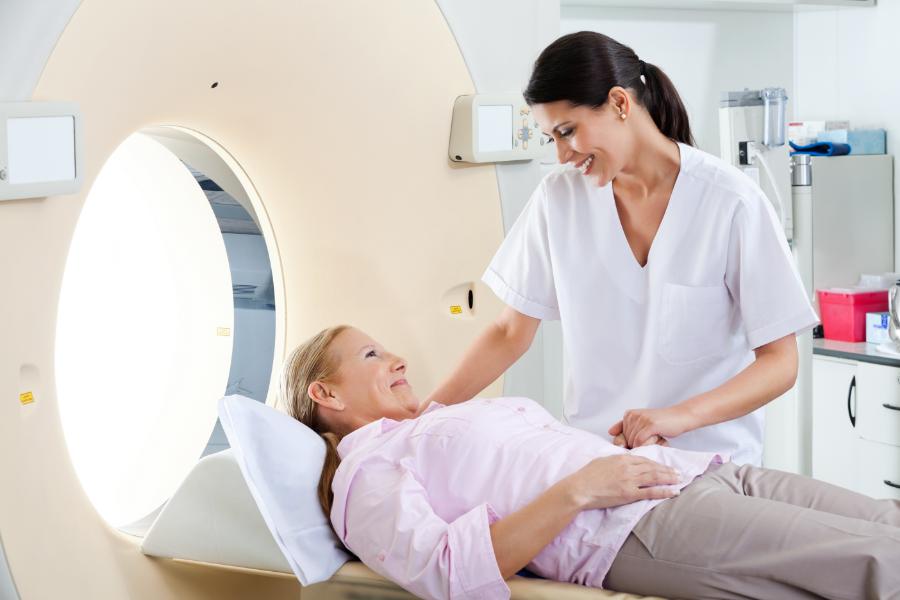A whole body scan refers to a medical imaging technique that captures images of the entire body for diagnostic purposes. It may involve various imaging tests, such as MRI scans, thyroid ultrasound, and CT scans.
The whole body scan is used to detect abnormalities, injuries, diseases, or other health conditions in your body. It is a painless procedure used to produce detailed images that give insight into the workings of your body.
At Grand Forks Clinic, we strive to offer accurate diagnoses and timely results to help your well-being. Our skilled team works closely to ensure that your whole body scan is done promptly and effectively.
The whole body scan produces detailed images of your body to help screen for abnormalities or diseases. This gives your healthcare provider a non-invasive way to examine the body and look for issues.
The purpose of a complete body scan can vary depending on your medical condition. It is a safe procedure for everyone.
A whole body scan is also beneficial when testing for a specific disease or condition, such as cancer. It can help identify the early stages of cancer. Treatments can be more effective when your healthcare provider detects cancer in an early stage.
Some common reasons for undergoing a whole body scan include the following:
- Detection of early-stage of cancer
- Screening for disease
- Monitoring the progress of the disease
- Assessment of organ function
We offer a full body scan package at an affordable price. We include the following tests within the package.
A brain MRI is a painless procedure that produces highly detailed images of the structures within your head, mainly of your brain. It uses magnets, radio waves, and computer imaging to produce clear images of the brain. Brain MRIs can help diagnose several medical conditions, such as tumors, infections, and damage to the brain. There is no radiation exposure during MRI.
Thyroid ultrasounds are performed to examine the thyroid gland. Your doctor may ask for an ultrasound to uncover the underlying condition if they notice any abnormal swelling, pain, or infections. It uses sound waves to generate images of the thyroid gland.
Low-dose chest CT scans produce detailed images of the chest area. It is commonly used for lung cancer screenings and detecting other conditions, such as lung infections and cardiovascular diseases. A low-dose chest CT scan uses less radiation than a regular CT scan, making it safer for routine testing.
An abdominal MRI is done to get detailed images of organs, such as the liver, pancreas, kidneys, gallbladder, and intestines. It helps diagnose or monitor treatment for conditions such as tumors, inflammatory bowel disease, and diseases in the liver and pancreas. Abdominal MRIs do not use radiation to produce images.
A pelvic MRI helps create pictures of the area between the hip bones or the pelvic region. It produces images of structures in or near the pelvic area, including the bladder, male reproductive organs, female reproductive organs, lymph nodes, large bowel, small bowel, and pelvic bones. It can help detect ovarian cancer, prostate cancer, and bone tumor.
You may be asked to fast for a few hours, depending on the tests to be performed during a whole body scan. Before your appointment, make sure to remove all jewelry, metal objects, and electronic devices. Consider wearing loose-fitting, comfortable clothing for the scan.
During the CT scan and MRI scan, you will be asked to lie on a motorized table that will slide into the machine. Remaining completely still during the examination is important to obtain high-quality images. You can tell the radiologist or technologist if you feel uncomfortable or anxious.
The length of the whole body scan depends on the duration of each test. The radiologist provides an official report to your healthcare provider, detailing the interpretation of what the images showed and offering recommendations for any necessary follow-up or additional testing.
A whole body scan can help identify various health conditions, including the early stages of cancer. At Grand Forks Clinic, we include imaging tests for the brain, thyroid, chest, abdomen, and pelvic areas as part of our whole body scan.
To schedule an appointment or discuss your specific needs, contact our Executive Health Program Coordinator:
Amy Foss, RN
Phone: (701) 620-3360
Email: executivehealth@grandforksclinic.com
At Grand Forks Clinic, we offer a whole body scan that includes brain MRI, thyroid ultrasound, low dose chest CT scan, abdominal MRI, and pelvic MRI at an affordable cost of $5,900.


